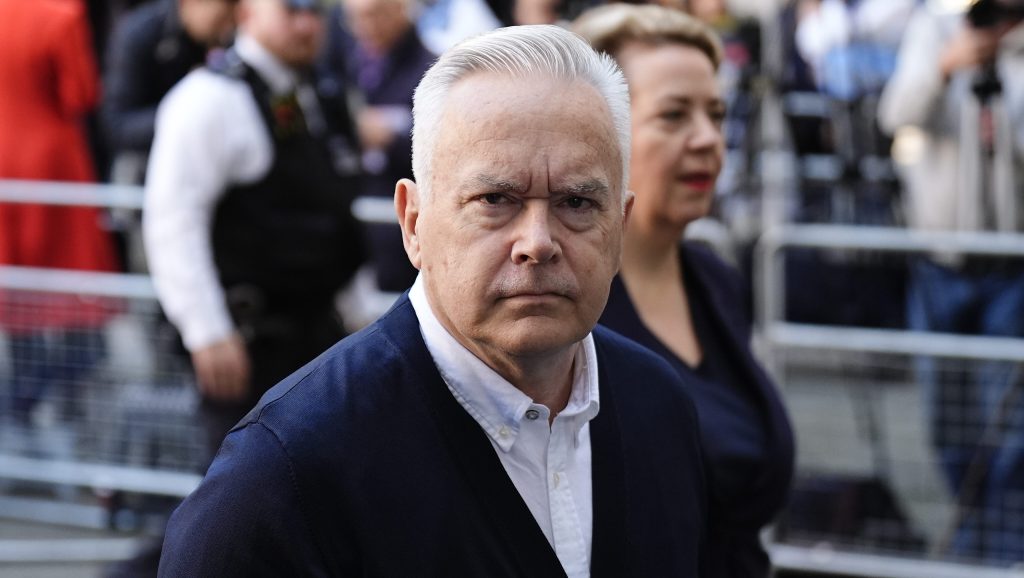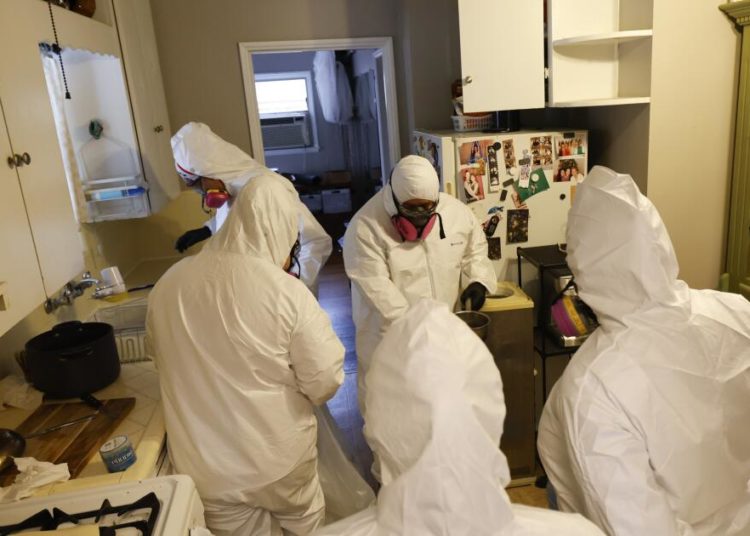A small number of individuals’ behavior “disproportionately” affects the BBC’s culture, morale and reputation, a long-awaited BBC review has found, but it denied the corporation has a culture of toxicity.
The Workplace Culture Review said there are a few employees who “behave unacceptably and their behaviour has not always been addressed” while creating “large ripples.” “Many presenters we spoke to are embarrassed and ashamed to be associated with people who feature in the press for their behavioural misdemeanours,” it said. “Several said they’d welcome the BBC being clear about behavioural expectations.”
From today, the BBC said it will launch a new code of conduct with specific guidance for on-air presenters, implement a more robust Disciplinary Policy with updated examples of misconduct and clear consequences and require all TV producers to meet industry standards set out by new, independent anti-bullying body CIISA.
Watch on Deadline
It outlined a number of other recommendations including a reset of behavioural expectations, a “call it out” culture to be promoted and the use of “real-time culture data” including, intriguingly, the development of a “dashboard to monitor cultural indicators.”
The review from Change Associates examined toxicity more broadly following a string of scandals but concluded there was “no evidence of a toxic culture,” which will be of relief to BBC top brass. “The BBC does not have a toxic culture” was highlighted in bold on the first page of the report.
Director General Tim Davie, who has previously called for a “zero tolerance” approach to wrongdoing, said the review’s publication “represents an important moment for the BBC and the wider industry.”
He added: “The action we are taking today is designed to change the experience of what it is to be at the BBC for everyone and to ensure the values we all sign up to when we arrive here – the values that, for most of us, are what made us want to come to the BBC in the first place – are lived and championed by the whole organisation each and every day.”
The 62-page review has been in the works for months and engaged with a colossal 2,500 BBC employees and freelancers across the UK including 20 production companies that make shows for the BBC.
“We heard about a minority of people who behave unacceptably and whose behaviour is not addressed and impacts employees and freelancers,” said the findings. “These people work in both on and off-air roles, dotted across the organisation in different functions and departments. They are often in positions where power could be abused. Even though they are small in number, their behaviour creates large ripples which negatively impact the BBC’s culture and external reputation.”
The review also said the BBC has “demonstrated it can act more decisively than in the past” in cases “where there is abuse of power with clear evidence.”
But it added that staff need to know today’s review will lead to practical actions and therefore set out its six recommendations, one of which includes better succession planning for on-air roles and the creation of more transparent opportunities for people to be given screen time.
Sparked by Huw Edwards
The review was sparked by disgraced ex-news anchor Huw Edwards’ guilty plea. Bullying and misconduct at the BBC had been under the microscope following a series of allegations made against top talent and senior figures including the likes of Russell Brand, Gregg Wallace and our own investigation into Breakfast boss Richard Frediani.
While Davie has urged “zero tolerance,” leaked emails from the BBC’s news and content bosses last week exposed a “really concerning” level of confidence over how the corporation handles bullying and harassment complaints, and in its whistleblowing procedures. We then revealed that BBC employees are keeping their jobs even when they have been the subject of an upheld sexual harassment complaint.
Today’s review also said the corporation has a problem with “vexatious claims and cases that often conclude with a finding of ‘no case to answer’ for managers or senior managers who have been subjected to investigations lasting several months.” “These prolonged investigations are not only highly stressful but also counterproductive,” it said.
Today’s review comes more than a decade after the BBC’s 2013 Respect at Work Review led by barrister Dinah Rose in the wake of the Jimmy Savile allegations. This review resulted in a deluge of complaints about BBC power players from nearly 1,000 staff including allegations of a manager sexting graduates and a female journalist being offered a promotion on the condition of a sexual liaison at her boss’s country cottage.
“A significant proportion of those we spoke with who had worked with the BBC for a while, said that overall, the culture is better than it was in our 2013 review,” said Change Associates today.
Broadcasting union Bectu, which represents the interests of thousands of freelancers, said the review should act as a watershed moment for change. “Repeated and historical scandals involving senior talent at the BBC exposed an organisation in need of a full rethink of its culture, and Bectu has been clear that a watershed moment was necessary for the BBC to drive meaningful change on this issue,” added head Philippa Childs.
A Change Associates survey found a “significant” 30% of freelancers who had worked for the BBC recently had encountered inappropriate behaviour. “The survey finds that while a majority of freelancers feel trusted, respected and feel engaged to do their best work, there is significant scope to improve the BBC freelancer experience,” it added in today’s report.
The post BBC Bullying Review Finds “No Evidence Of Toxic Culture” But Says Behavior Of Small Number Of Individuals “Disproportionately” Affects Reputation & Morale appeared first on Deadline.




